Music
1978 results
Page 188
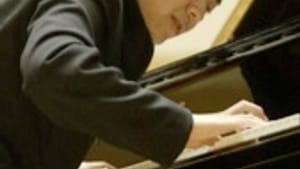
Lang Lang at the Mann
Yellow River is that rare item, a successful piece of democratic art. But Lang Lang’s histrionics are no substitute for the passion he should communicate through his piano.
Philadelphia Orchestra: Mozart Overture to The Marriage of Figaro, Piano Concerto No. 17 in G Major; Various China Air Suite, Yellow River, concerto for piano and orchestra. Lang Lang, piano; Long Yu, conductor. July 18, 2007 at Mann Music Center. (215) 893-1900 or
Philadelphia Orchestra: Mozart Overture to The Marriage of Figaro, Piano Concerto No. 17 in G Major; Various China Air Suite, Yellow River, concerto for piano and orchestra. Lang Lang, piano; Long Yu, conductor. July 18, 2007 at Mann Music Center. (215) 893-1900 or
Articles
4 minute read
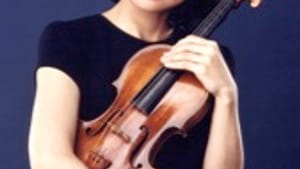
Orchestra's second "East Meets West' program
The Philadelphia Orchestra’s second “East Meets West” program at the Mann explored more aspects of the musical interchange. But the Mann’s cavernous space requires a bigger tone than Midori produced on this occasion.
Philadelphia Orchestra: Ravel Suite from Mother Goose; Tchaikovsky Violin Concerto in D Major; Tan Dun Overture: Dragon and Phoenix from Heaven Earth Mankind; Debussy La Mer. Rossen Milanov, conduct
Philadelphia Orchestra: Ravel Suite from Mother Goose; Tchaikovsky Violin Concerto in D Major; Tan Dun Overture: Dragon and Phoenix from Heaven Earth Mankind; Debussy La Mer. Rossen Milanov, conduct
Articles
3 minute read

Mendelssohn's real tragedy
What would the world have been like if the Fates had been just a little kinder and allowed Schubert and Mendelssohn to know each other’s music as contemporaries? Mendelssohn was, I believe, the most musically gifted of all his famous contemporaries: the only composer in music history smart enough to assimilate Mozart’s music successfully. Yet his music makes we want to scream.
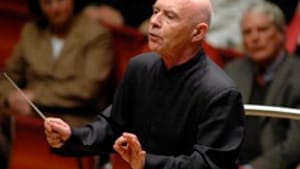
Milanov vs. Eschenbach
BEETHOVEN AT THE MANN, or:
THE GREAT ESCHENBACH DEBATE continues
When Milanov conducted the Shostakovich, I realized it was a perfect expression of the feelings I associate with the quiet, sober veterans I met immediately after World War II. I didn’t hear any of that in Eschenbach’s performance.
Philadelphia Orchestra: Higdon Concerto for Orchestra, Beethoven Symphony Number Nine. Arianna Zukerman, soprano; Jennifer Hines, mezzo-soprano; Stephen Tharp, tenor; Stephen Powell, baritone; Philadelphia Singers Chorale; Ro
Philadelphia Orchestra: Higdon Concerto for Orchestra, Beethoven Symphony Number Nine. Arianna Zukerman, soprano; Jennifer Hines, mezzo-soprano; Stephen Tharp, tenor; Stephen Powell, baritone; Philadelphia Singers Chorale; Ro
Articles
5 minute read
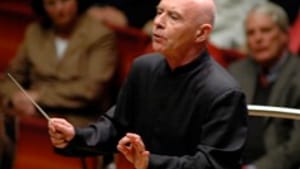
Eschenbach vs. Milanov
When Milanov conducted the Shostakovich, I realized it was a perfect expression of the feelings I associate with the quiet, sober veterans I met immediately after World War II. I didn’t hear any of that in Eschenbach’s performance.
Philadelphia Orchestra: Higdon Concerto for Orchestra, Beethoven Symphony Number Nine. Arianna Zukerman, soprano; Jennifer Hines, mezzo-soprano; Stephen Tharp, tenor; Stephen Powell, baritone; Philadelphia Singers Chorale; Ro
Philadelphia Orchestra: Higdon Concerto for Orchestra, Beethoven Symphony Number Nine. Arianna Zukerman, soprano; Jennifer Hines, mezzo-soprano; Stephen Tharp, tenor; Stephen Powell, baritone; Philadelphia Singers Chorale; Ro
Articles
5 minute read
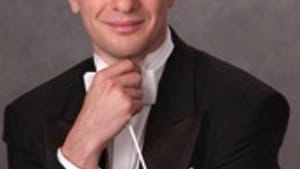
Orchestra's "Best Of"¦' concerts
The Philadelphia Orchestra’s “Best of...” concerts were obviously designed to attract people who aren’t familiar with the Orchestra’s wares. Rossen Milanov gave them useful guides when he talked, and the real unadulterated stuff when he conducted. And yes, he did indeed crowd a portrait of Beethoven’s development into a single evening.
Philadelphia Orchestra: Best of Mozart, Best of Beethoven, Best of Tchaikovsky. Excerpts from works b
Philadelphia Orchestra: Best of Mozart, Best of Beethoven, Best of Tchaikovsky. Excerpts from works b
Articles
4 minute read

The case for electronic music
Electronic music has become so accessible that a good deal of it is pretty primitive— the kind you might want your neighbor to turn down at 3 a.m. But this proliferation of new sounds strikes me a lot like 18th-Century musical Vienna must have seemed. All we lack is a new Joseph Haydn.
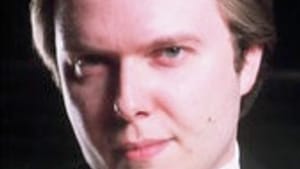
Fresh air from the Chamber Orchestra
The Chamber Orchestra will devote almost half its repertory in the coming season to works by daring experimental composers, past and present. If Ignat Solzhenitsyn keeps up this sort of programming, perhaps Charles Dutoit’s arrival at the Philadelphia Orchestra won’t stultify Philadelphia concert life as much as I’d feared.
Sign up for our newsletter
All of the week's new articles, all in one place. Sign up for the free weekly BSR newsletters, and don't miss a conversation.
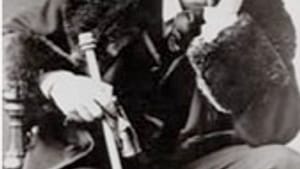
Center City Opera's "Dorian Gray' (2nd review)
The Picture of Dorian Gray is over a century old, but it’s a story that speaks to modern audiences. It will probably seem even more relevant as life spans continue to lengthen and medical progress continues to reduce the effects of aging.
Lowell Liebermann’s The Picture of Dorian Gray. Jorge Garza (Dorian Gray), Jason Switzer (Lord Henry), Megan Marie Hart (Sibyl Vane), Richard Ziebarth (Basil Hallward), Joseph Specter (James Vane). An
Lowell Liebermann’s The Picture of Dorian Gray. Jorge Garza (Dorian Gray), Jason Switzer (Lord Henry), Megan Marie Hart (Sibyl Vane), Richard Ziebarth (Basil Hallward), Joseph Specter (James Vane). An
Articles
4 minute read
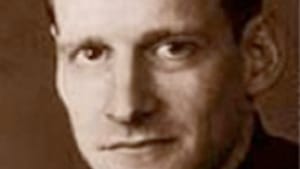
Center City Opera's "Dorian Gray' (1st review)
Lowell Liebermann’s opera based on Oscar Wilde’s story gets much needed traction in this chamber orchestra version. Liebermann’s music is audience-friendly; his instrumentation is modern but the tonality is conservative, which is a logical choice for a story set in Victorian times.
The Picture of Dorian Gray. Opera by Lowell Liebermann; directed by Leland Kimball. Presented through June 12, 2007 by Center City Opera Theater at the Perelman Theater, Kimmel
The Picture of Dorian Gray. Opera by Lowell Liebermann; directed by Leland Kimball. Presented through June 12, 2007 by Center City Opera Theater at the Perelman Theater, Kimmel
Articles
3 minute read